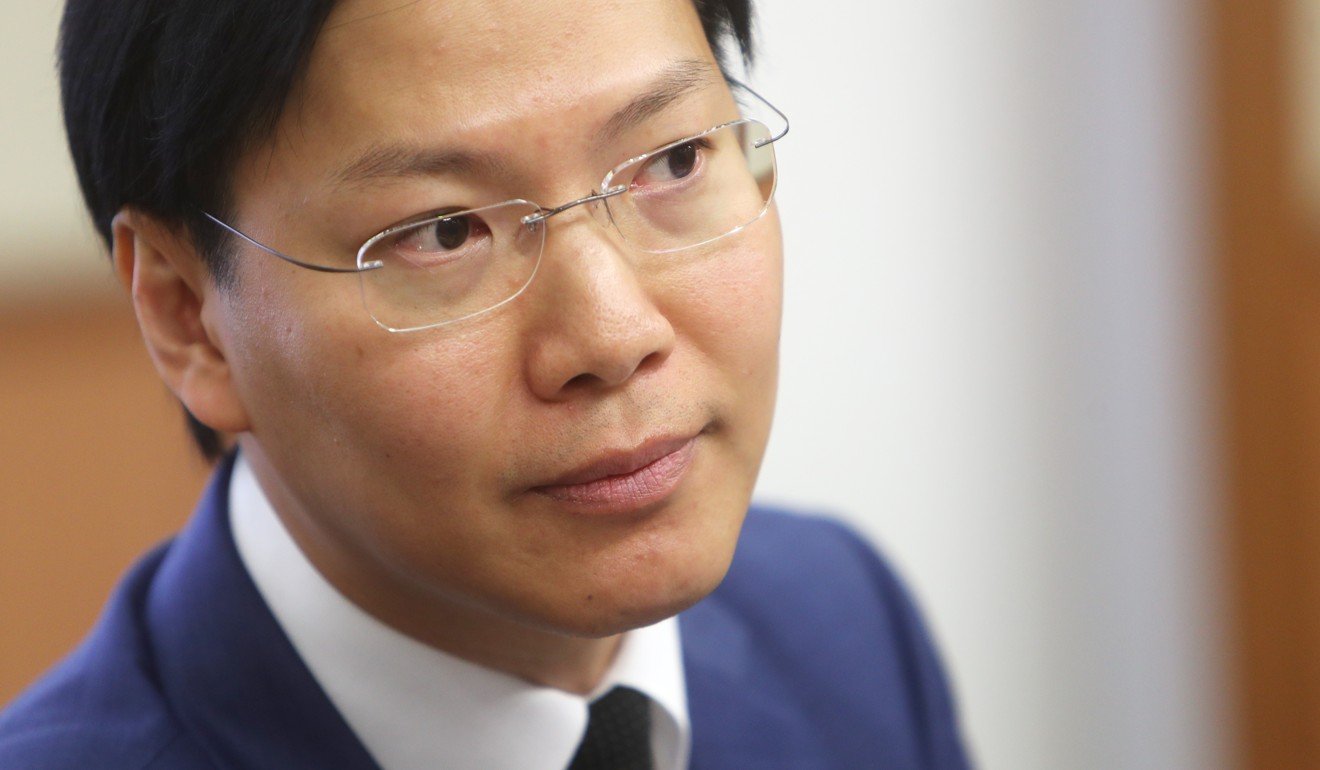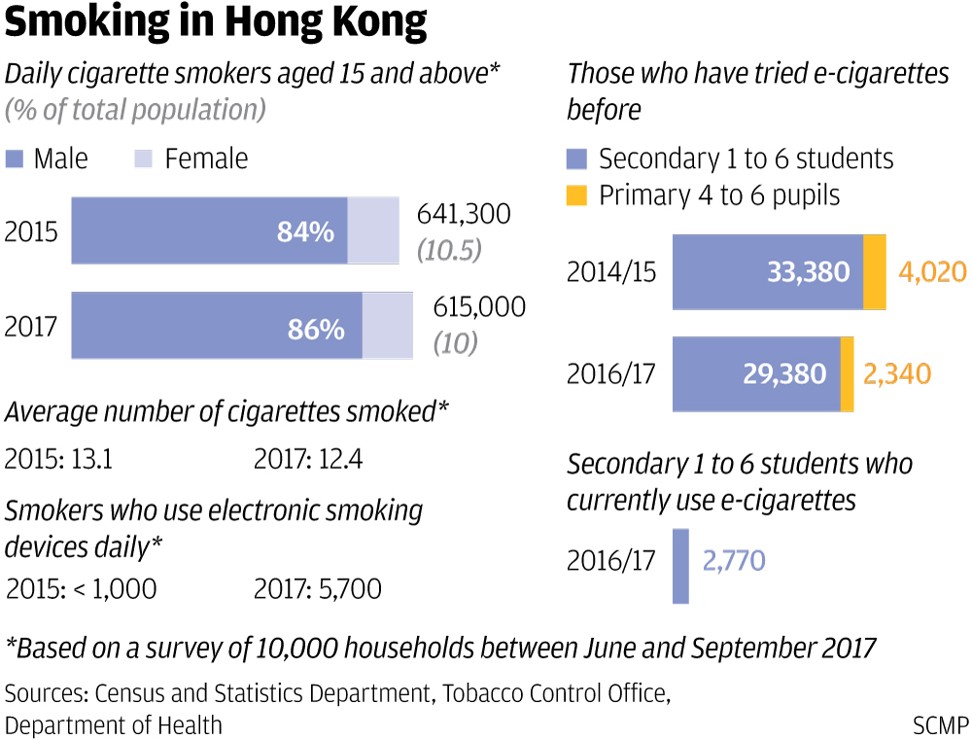Even as the population of regular smokers in Hong Kong has declined over the years to about 10 per cent, the use of electronic smoking devices among them is on an alarming upwards trend, according to latest government figures.
Those above the age of 15 using e-cigarettes and heat-not-burn tobacco products rose almost sixfold in two years, from below 1,000 in 2015 to 5,700 last year, the Census and Statistics Department found when it interviewed 10,000 households in the second half of last year.
Vaping and e-cigarettes in Hong Kong: a dangerous gateway or a safe tool for quitting smoking?
When the Food and Health Bureau commissioned a survey of primary and secondary schools between November 2016 and last June, it found 29,380 teens had tried e-cigarettes before, with 2,770 still using them. Among Primary 4 to 6 pupils, 2,340 had tried e-cigarettes, also known as vaping, before.
While the number of teens and children who had ever tried e-cigarettes declined slightly from the 2014/15 survey, the head of the Department of Health’s Tobacco Control Office said the government was “very concerned” about the overall growth in e-cigarette use.
“We plan to strengthen the monitoring and regulation of these electronic smoking devices, ” Dr Jeff Lee Pui-man said, adding that the department would also step up public education on the ills of the activity.
E-cigarettes work by creating a vapour from a mixture of propylene glycol, glycerine and flavourings – often including nicotine – that replicates the smoking experience but without most of the toxic chemicals found in traditional cigarettes.
Hong Kong antismoking body hit by manpower shortage and dismal night enforcement
A study by Baptist University done in 2016 found e-cigarettes contain 1 million times more cancer-causing substances than outdoor air, higher than the samples of conventional cigarettes used in the study, while the University of Hong Kong in a 2015 poll found that 7.9 per cent of smokers aged 15 to 29 had used e-cigarettes, significantly higher than those in other age groups.
Smoking keeps China’s poor mired in poverty, global agencies say
The Hong Kong Council on Smoking and Health, an activist group that commissioned both studies, called for a ban on e-cigarettes and an increase in tobacco tax.
“The marketing strategies of e-cigarettes are mainly targeting young people,” said Antonio Kwong, chairman of the council.
But there are some who argue that while e-cigarettes should not be sold to people under the age of 18, banning it completely would affect those who use vaping as an aid to give up smoking.
Hong Kong policy on heated tobacco products is baffling. Can we learn from Japan?
Urologist Dr Kwok Ka-ki, who chairs the subcommittee on smoking at the Legislative Council, blamed tobacco companies for producing and promoting e-cigarettes.
“It’s their next battle field and they have tremendous resources to reach a similar level of profit [that they got from regular cigarettes],” Kwok said, urging the government to commit to regulating e-cigarettes.
E-cigarettes are banned in Macau while Singapore has banned the purchase, use and possession of emerging and imitation tobacco products, such as smokeless tobacco products, chewing tobacco and shisha.
Heat rising in Hong Kong’s war on tobacco
In Hong Kong, the government has in the last decade increased tobacco duty on three occasions, but its tax of 67 per cent of the retail prices is still lower than the 75 per cent recommended by the World Health Organisation.
The Tobacco Control Office noted that as of last year, 615,000 people from the household survey considered themselves daily or regular smokers, down from 641,300 people two years ago. While this amounted to 10 per cent of the population – the lowest ever figure – it wanted to reduce this further to single digits.
There were also more smokers who expressed no intention to quit, it said, and it would look at new ways to encourage hardcore smokers to give up the habit.





